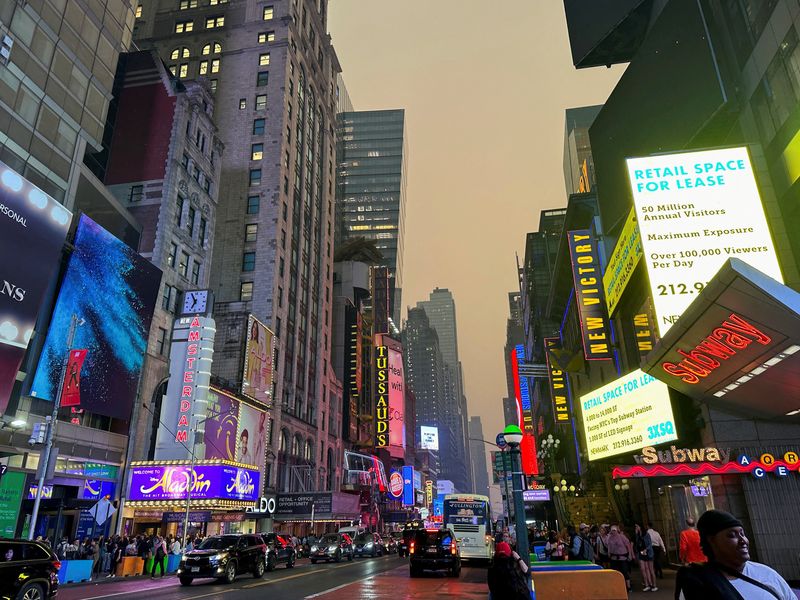Canadian wildfires prompt new evacuations, alarm over air quality
2023.06.07 11:46
2/2

© Reuters. Times Square in Manhattan is shrouded in haze and smoke which drifted south from wildfires in Canada, in New York City, New York, U.S., June 6, 2023. REUTERS/Maye-E Wong
2/2
OTTAWA (Reuters) – Firefighters battled hundreds of blazing forest fires on Wednesday as Canada’s worst-ever early season wildfires prompted more evacuations and a blanket of smoky air triggered health alarms in U.S. cities.
An unusually early and intense start to wildfire season has set Canada on track for its worst-ever year of fire destruction as warm and dry conditions are expected to persist for months.
Canadian Prime Minister Justin Trudeau is due to provide an update on the wildfires at 12:30 p.m. in Ottawa (1600 GMT), according to his itinerary for Wednesday.
There are blazes in nearly all of Canada’s provinces and territories, with Quebec among the worst affected. The eastern province, Canada’s second-most populous, has so far had four times the 10-year average of wildfires, with some 149 active fires as of Wednesday.
Residents of Chibougamau and Ouje-Bougoumou towns in northern Quebec received evacuation orders Tuesday night, becoming the latest group of people in the province to evacuate homes after thousands were forced out last week.
In neighboring Ontario province, Canada’s most populous, deteriorating air quality has been forecast this week in cities including Ottawa and Toronto due to smoke plumes from forest fires in Quebec.
South of the border, more than a dozen U.S. states were under air-quality alerts on Wednesday as smoke from hundreds of wildfires burning in eastern Canada wafted south, casting a dull gray pallor over the skyline of New York and other big cities.
Wildfires are common in Canada’s western provinces, but this year flames have mushroomed rapidly in the country’s east, forcing home evacuations and the federal government to send in the military.
About 3.3 million hectares have already burned – some 13 times the 10-year average – and more than 120,000 people have been at least temporarily forced out of their homes.








